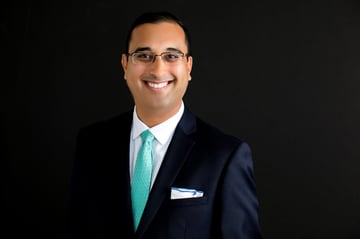Whenever emergencies arise, nonprofit fundraisers frequently find themselves caught between the organization’s need for revenue and the awkward nature of asking for gifts during a time of need.
Throughout the COVID-19 pandemic, this question has come up once again. We have held firm in our position that it is not insensitive to ask for charity during a time of crisis.

Donors remain loyal to the causes they love, and that support hasn’t changed. People still have a need and a desire to give, and nonprofits have a need to receive in order to fund their programs.
But what about planned giving? Should fundraisers be asking the elderly or people at risk of severe COVID complications to make bequests during this pandemic?
A recent research project by fundraising think tank Rogare took on this controversial topic, and they published a report titled “The ethics of legacy fundraising during emergencies.” We highly recommend giving it a read.

In order to gain a little more insight into the ethics of planned giving, we turned to one of the key members of the Rogare project team. Cherian Koshy serves as the Director of Development at Des Moines Performing Arts and acts as a volunteer member of Rogare’s advisory panel. He recently sat down to answer a few questions:
IS IT ETHICAL TO ASK FOR LARGE LEGACY GIFTS DURING AN EMERGENCY?
Koshy: The likely answer is yes. As you look through the different ethical frameworks, the major concern of the ethics of legacy gifts centers around poor timing and giving offense. In these areas and others, it's unlikely that a current pandemic or economic recession would be a unique reason to consider an ask unethical.
To be clear, at any time there are overarching considerations regarding legacy fundraising ethics that should always be followed.
DOES THE TYPE OF EMERGENCY MAKE A DIFFERENCE?
Whether it is a pandemic or an economic impact, emergencies don't affect everyone equally.
One thing we do know is that many people during the pandemic engaged attorneys to write or rewrite their wills. If these individuals are charitably minded, it's the donor who is making the decision about whether to make a legacy gift in an emergency.
SHOULD NONPROFITS ALSO REACH OUT FOR PLANNED GIFTS DURING THE PANDEMIC THAT ARE NOT END-OF-LIFE GIFTS?
As with all fundraising strategies, nonprofits should tailor their asks and offers to specific donors and where there has been an indication of linkage, affinity and capacity. In many cases, planned gifts have important tax advantages that could substantially help charitably minded donors during these times.
WHY DO SOME SEE LEGACY FUNDRAISING AS UNETHICAL?
There are a wide variety of objections to fundraising generally and then to legacy fundraising. These concerns often come from individuals who are in leadership (staff or board) who have great intentions but are unfamiliar with the body of knowledge that supports effective and ethical fundraising practice.
The typical concerns range from causing offense to “no one will give.”
WHAT IS THE BEST APPROACH WHEN ASKING FOR LEGACY GIFTS?
Many of the authors of this paper are experts in legacy giving, and we would highly recommend following their publications, webinars, etc., on strategies for asking for legacy gifts.
We would all agree that legacy giving programs are important to resource both in terms of staff and staff training but also in terms of how they are marketed. We'd also all agree that legacy programs are an important part of most nonprofits' overall fundraising strategy.
HOW DO YOU MARKET PLANNED GIVING WITHOUT COMING ACROSS AS INSENSITIVE?
Ideally, marketing planned giving comes with considerable amounts of planning and strategizing before it's deployed. I think all of us would agree that hastily marketing a planned giving program without understanding donors and their motivations is what, in part, shows insensitivity.
Individualized, personalized communications based on good research and planning is an important defense against insensitivity. Many of the issues of insensitivity are caused by broadcast communications.
DOES THE TYPE OF ORGANIZATION ASKING MAKE A DIFFERENCE?
It's difficult to see how type of organization would make a difference, but each sector treats planned giving differently already. For example, a hospital/healthcare entity approaches planned giving very differently in its marketing and strategy than an arts organization might.
WHAT FINAL ADVICE DO YOU HAVE FOR NONPROFITS IN TODAY’S COMPLEX ENVIRONMENT?
Our ongoing advice is for frontline fundraisers to engage in critical thinking and research based upon the body of knowledge in fundraising. Many times, our gut instinct when it comes to practice is not consistent with research.
Rogare has several additional projects and research findings that can aid fundraisers in thinking through the complex issues they confront on a daily basis. We encourage all fundraisers to engage with these issues in our various channels.





Leave a comment: